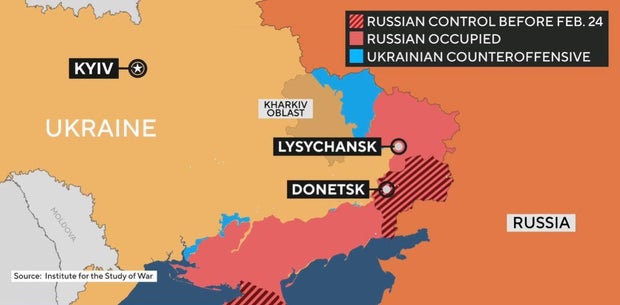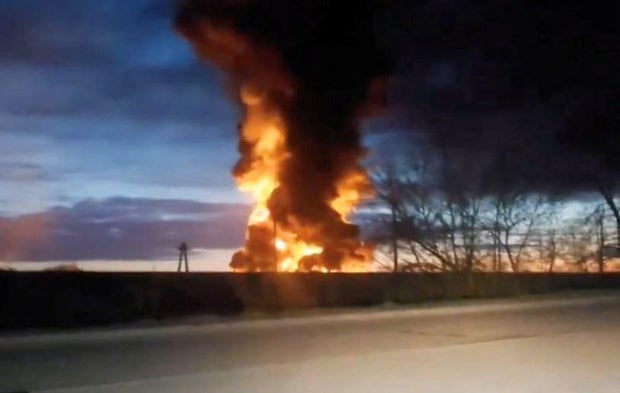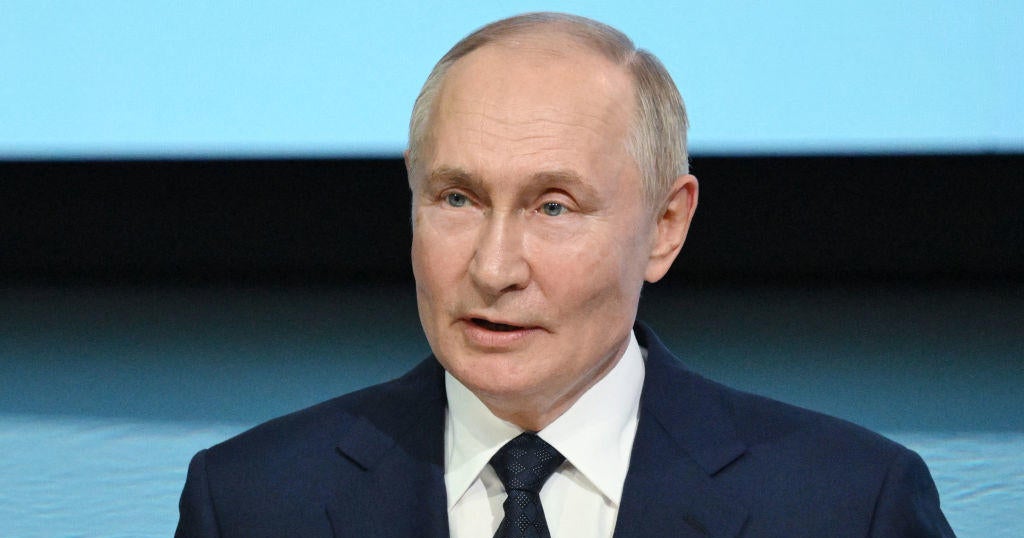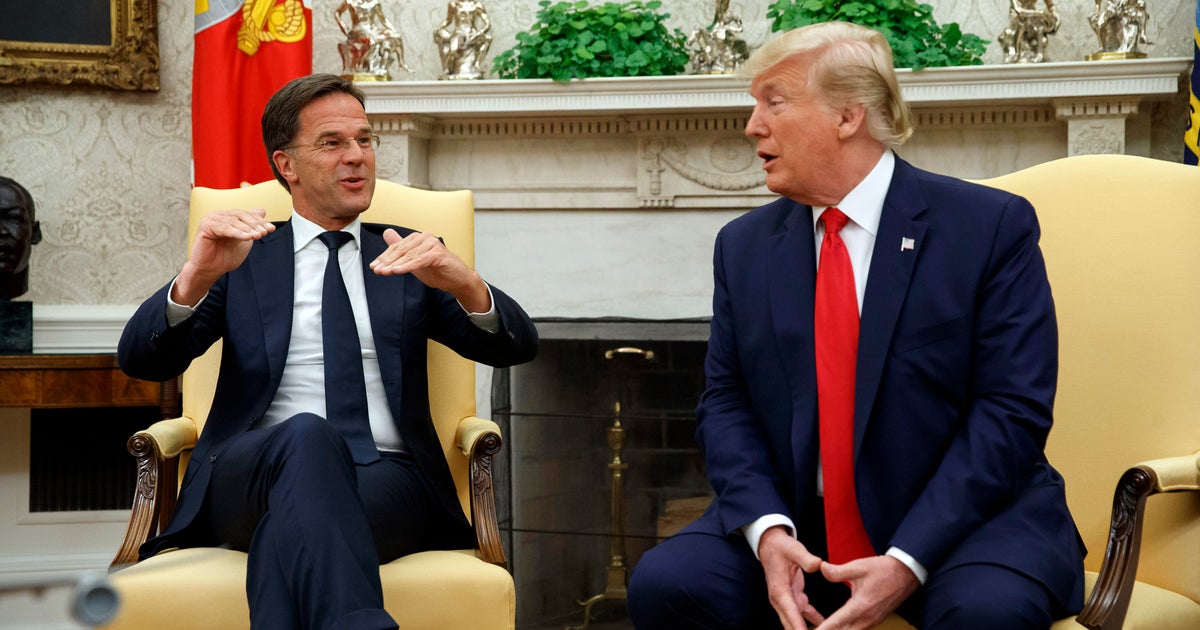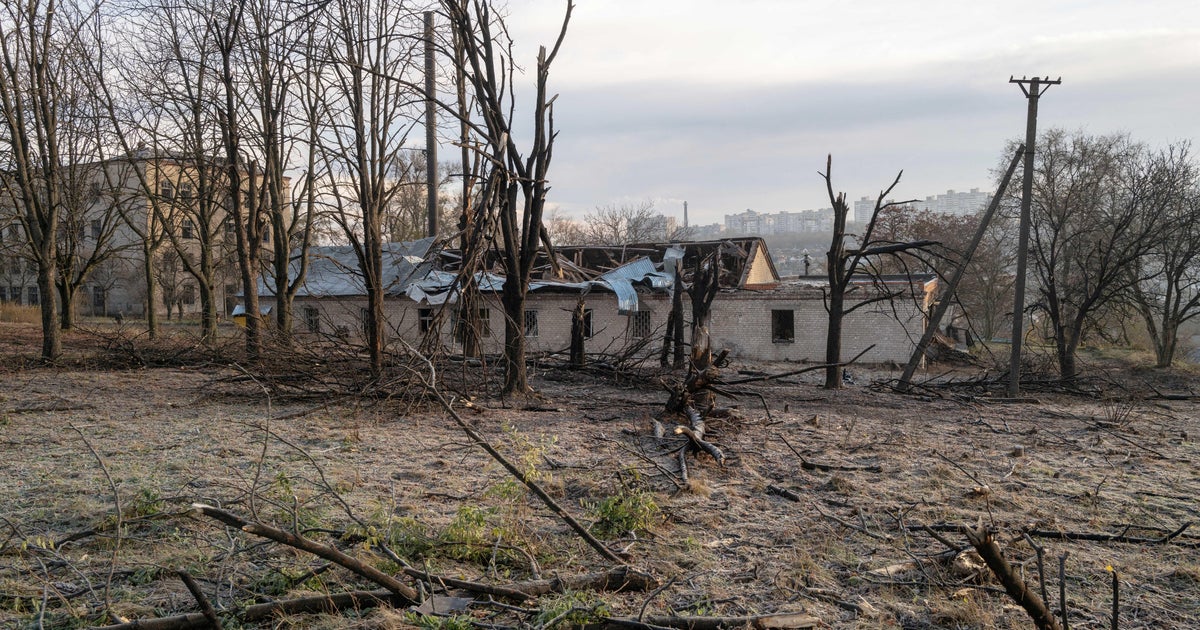CBS News
Russia calls France leader Macron refusing to rule out troops for Ukraine “very dangerous”
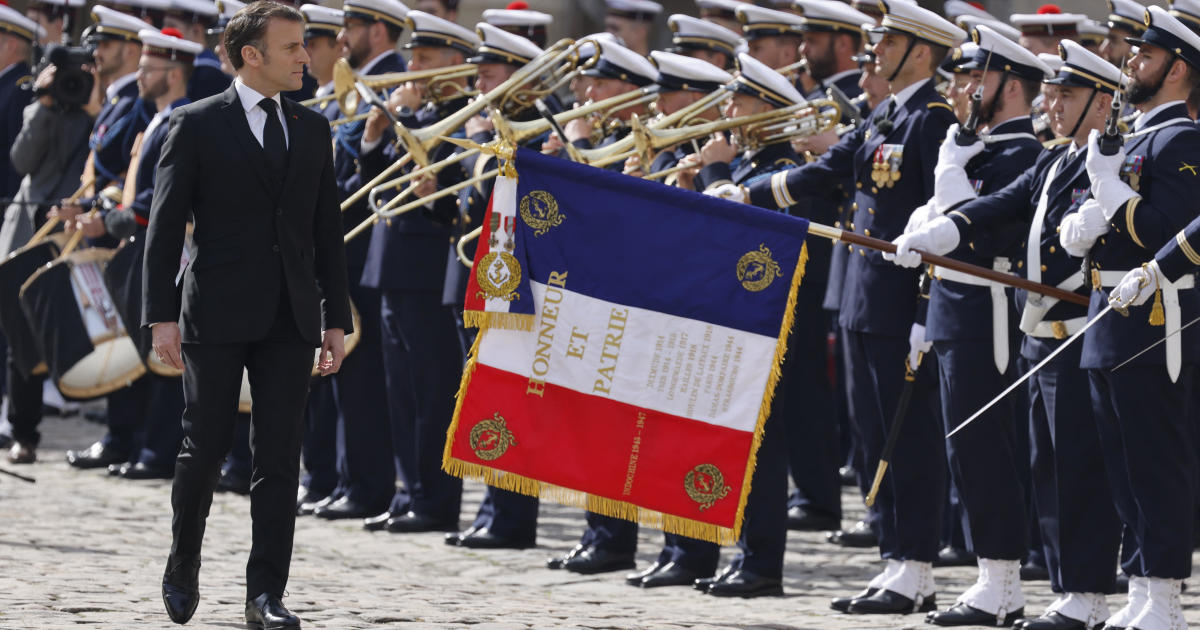
Russia’s government on Friday blasted France’s President Emmanuel Macron for again suggesting his country would consider sending troops to Ukraine to help defend against Russia’s ongoing invasion, if Kyiv were to request that level of help.
In an interview with The Economist magazine published Thursday, Macron said his country would have to consider the request if it were to arise and if Russian forces manage to break through Ukraine’s front-line defenses along the long front line in the east of the country.
”I’m not ruling anything out, because we are facing someone who is not ruling anything out,” he told the Economist, referring to Russian President Vladimir Putin. “If the Russians penetrate the front lines, if there is a Ukrainian request — which is not the case today — we should legitimately ask ourselves the question” about sending forces, Macron told the magazine.
LUDOVIC MARIN/POOL/AFP/Getty
Russia calls French and U.K. rhetoric “very dangerous”
“The statement is very important and very dangerous,” Kremlin spokesperson Dmitry Peskov said Friday in Moscow, accusing Macron of repeatedly raising the prospect of “direct involvement on the ground in the conflict around Ukraine.”
“This is a very dangerous trend,” Peskov said.
Since he ordered the full-scale invasion of Ukraine in February 2022, Putin’s government has claimed it was in self-defense against the U.S.-led NATO alliance to push its area of control right to Russia’s western border. The backlash to the invasion among northern European nations has, however, brought NATO territory closer to Russia than it ever was before.
Macron drew criticism from Russia and his own NATO allies when he first floated the possibility of a French deployment to Ukraine earlier this year. The Biden administration, while always adamant that every inch of NATO territory will be defended, has ruled out any U.S. combat deployment to Ukraine.
“If Russia wins in Ukraine we will no longer have security in Europe. Who can pretend that Russia would stop there?” Macron said in the latest interview.
Peskov also called remarks by Britain’s Foreign Secretary David Cameron – who met this week with Ukraine’s leader Volodymyr Zelenksyy — that justified Kyiv striking targets inside Russia “dangerous” and “escalatory” rhetoric by the West.
Visiting Kyiv, Cameron said Ukraine “absolutely has the right to strike back at Russia” and that London did not tell Ukraine how its forces should use weapons supplied by Britain. Ukraine has carried out a number of strikes, mostly targeting energy infrastructure, inside Russia in recent months.
Peskov said the latest remarks by Macron and Cameron “potentially pose a danger to European security, to the entire European security architecture,” noting what he called “a dangerous tendency toward escalation in official statements. This is raising our concern.”
What’s happening on the front lines of the Ukraine war?
The situation on the front line in eastern Ukraine is worsening, but local defenders are so far holding firm against a concerted push by Russia’s bigger and better-equipped forces, a senior Ukrainian military official said Thursday.
Nazar Voloshyn, spokesperson for Ukrainian strategic command in the east of the country, said Russia has amassed troops in the Donetsk region in an effort to punch through the Ukrainian defensive line.
“The enemy is actively attacking along the entire front line, and in several directions they have achieved certain tactical advances,” he said on national television. “The situation is changing dynamically.”
CBS/Institute of War
Russia has pushed Ukraine onto the back foot on the battlefield as Kyiv grapples with shortages of troops and ammunition. Ukrainian forces are now racing to build more defensive fortifications at places along the roughly 600-mile front line. That line stretches from the northern to southern borders of Ukraine, with much of the country’s eastern Donbas industrial heartland now held by Russia.
Ukraine’s difficulties have been deepening for months as the military waits for vital new military aid from the United States. The support was held up by politics in Washington for six months, but a massive aid package was finally cleared by lawmakers and signed by President Biden late last month. It’s unclear when the much-needed U.S. hardware granted by that aid package will start reaching Ukraine’s front-line troops, however.
Ukrainian soldiers withdrew from Avdiivka, a city in the Donetsk region, in February under a withering Russian barrage that had sapped their fighting strength and morale. Since then, the Kremlin’s forces have used their military might to take village after village in the area, bludgeoning them into submission, as they look to capture the parts of Donetsk they don’t already occupy.
Speaking Friday, Russia’s Minister of Defense Sergei Shoigu said his forces were breaking into “enemy strongholds along the entire line of combat contact.”
“Units of the Ukrainian Armed Forces are trying to cling to individual lines, but under our onslaught, they are forced to abandon their positions and retreat,” Shoigu asserted, claiming that his troops had seized an additional 211 square miles of territory since the beginning of the year alone.
Cities in Russia’s crosshairs, including recent target Chasiv Yar in eastern Ukraine, are pulverized by Moscow’s missiles, drones and glide bombs. CBS News’ Charlie D’Agata was in Chasiv Yar in late February as explosions rang out non-stop, and he found a city ravaged by artillery fire — and exhausted Ukrainian troops desperate for help from their international partners.
The Donetsk and Luhansk provinces together make up the Donbas, an expansive industrial region bordering Russia that Putin identified as a focus from the war’s outset and where Moscow-backed separatists have fought since 2014.
Missile and drone strikes continue — on both sides
Long-range strikes have been a constant and devastating feature of Europe’s biggest conflict since World War II. Kyiv officials have pleaded for more air defense systems from Ukraine’s Western partners, but they’ve been slow in coming.
President Zelenskyy said Thursday that Russia had launched more than 300 missiles of various types, almost 300 Shahed drones, and more than 3,200 guided aerial bombs at Ukraine in April alone.
Odesa, a key export hub for millions of tons of Ukrainian grain exports through the Black Sea, has been repeatedly targeted by Russia.
Ukraine has deployed increasingly sophisticated long-range drones to hit back, meanwhile, aiming at targets on Russian soil, especially energy infrastructure that sustains the Russian economy and war effort.
Reuters
The governors of three Russian regions reported that energy facilities were damaged by Ukrainian drone strikes overnight. Oryol region Gov. Andrei Klychkov said energy infrastructure was hit in two communities. The Smolensk and Kursk governors reported one facility damaged in each region.
The Russian Defense Ministry said Ukrainian drones were shot down over the Bryansk, Krasnodar, Rostov and Belgorod regions. Most were intercepted in Bryansk, where five were brought down, it said.
CBS News
Dishing up space food – CBS News

Watch CBS News
Be the first to know
Get browser notifications for breaking news, live events, and exclusive reporting.
CBS News
In praise of Seattle-style teriyaki

Watch CBS News
Be the first to know
Get browser notifications for breaking news, live events, and exclusive reporting.
CBS News
Gazan chefs cook up hope and humanity for online audience

Renad Atallah is an unlikely internet sensation: a 10-year-old chef, with a repertoire of simple recipes, cooking in war-torn Gaza. She has nearly a million followers on Instagram, who’ve witnessed her delight as she unpacks parcels of food aid.
CBS News
We interviewed Renad via satellite, though we were just 50 miles away, in Tel Aviv. [Israel doesn’t allow outside journalists into Gaza, except on brief trips with the country’s military.]
“There are a lot of dishes I’d like to cook, but the ingredients aren’t available in the market,” Renad told us. “Milk used to be easy to buy, but now it’s become very expensive.”
I asked, “How does it feel when so many people like your internet videos?”
“All the comments were positive,” she said. “When I’m feeling tired or sad and I want something to cheer me up, I read the comments.”
We sent a local camera crew to Renad’s home as she made Ful, a traditional Middle Eastern bean stew. Her older sister Noorhan says they never expected the videos to go viral. “Amazing food,” Noorhan said, who added that her sibling made her “very surprised!”
After more than a year of war, the Gaza Strip lies in ruins. Nearly everyone has been displaced from their homes. The United Nations says close to two million people are experiencing critical levels of hunger.
Hamada Shaqoura is another chef showing the outside world how Gazans are getting by, relying on food from aid packages, and cooking with a single gas burner in a tent.
Shaqoura also volunteers with the charity Watermelon Relief, which makes sweet treats for Gaza’s children.
In his videos online, Shaqoura always appears very serious. Asked why, he replied, “The situation does not call for smiling. What you see on screen will never show you how hard life is here.”
Before dawn one recent morning in Israel, we watched the UN’s World Food Program load nearly two dozen trucks with flour, headed across the border. The problem is not a lack of food; the problem is getting the food into the Gaza Strip, and into the hands of those who desperately need it.
The UN has repeatedly accused Israel of obstructing aid deliveries to Gaza. Israel’s government denies that, and claims that Hamas is hijacking aid.
“For all the actors that are on the ground, let the humanitarians do their work,” said Antoine Renard, the World Food Program’s director in the Palestinian territories.
I asked, “Some people might see these two chefs and think, well, they’re cooking, they have food.”
“They have food, but they don’t have the right food; they’re trying to accommodate with anything that they can find,” Renard said.
Even in our darkest hour, food can bring comfort. But for many in Gaza, there’s only the anxiety of not knowing where they’ll find their next meal.
For more info:
Story produced by Mikaela Bufano. Editor: Carol Ross.
See also:
“Sunday Morning” 2024 “Food Issue” recipe index
Delicious menu suggestions from top chefs, cookbook authors, food writers, restaurateurs, and the editors of Food & Wine magazine.



